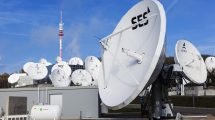A Russian Proton-M rocket carrying three GLONASS Russian government navigation satellites exploded on July 2 shortly after its launch in Kazakhstan, according to officials at International Launch Services (ILS) at Reston, Virginia. No injuries were reported in the safe area, which had been evacuated prior to launch, however, ILS noted some damage to nearby buildings.

The Russian Federal Space Agency Roscosmos has set up an investigatory commission to establish the cause of the explosion while ILS is planning its own investigation.
However, Jacob Gullish, Director of Space and Telecommunications Division at Futron Corporation, has attributed this explosion to Russia’s space programme.
“They [Russians] have had a series of accidents over the past couple of years and in every instance, it’s here we go again; yet another launch failure. Now it’s fair to say there is something clearly systematically wrong with [the] Russian launch industry,” says Gullish.
Gullish did, however, go on to say: “I think the good news is that the Russian government is committed to changing, to seriously and significantly reorganising its space programme. This could be a turning point that allows them to reposition themselves in highly competitive environment.”
SES has an upcoming launch this month; its Astra 2E satellite is scheduled for take-off on July 20 aboard an ILS Proton rocket. Speculation is high with many wondering whether the launch will be delayed.
“It will most likely be delayed until they figure out what went wrong with the launch,” says Eric Beaudet, Equity Analyst at Natixis Securities. SES officials, however, wouldn’t speculate, saying that it’s too early to say what will happen.
In addition to SES’ Astra 2E, Eutelsat’s 2013 launch plans could potentially also be affected by this rocket failure, notes Beaudet. The Express AT2 is scheduled for an ILS launch in December.












Add Comment